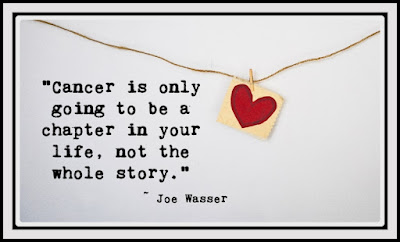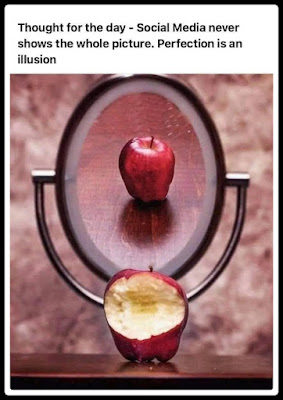Background HTML Whitewashed
Saturday, April 19, 2025
Monday, March 31, 2025
Friday, February 28, 2025
Hope in the Midst of Heartbreak...
“The worst isn't the last thing about the world. It's the next to the last thing. The last thing is the best. It's the power from on high that comes down into the world, that wells up from the rock-bottom worst of the world like a hidden spring. Can you believe it? The last, best thing is the laughing deep in the hearts of the saints, sometimes our hearts even. Yes. You are terribly loved and forgiven. Yes. You are healed. All is well.”
― Frederick Buechner, The Final BeastFriday, September 29, 2023
Walking through Heartache...
These past 2 months have been dogged by death. We have sorrowed and mourned the passing of dear loved ones...
A nephew.
A brother.
A cousin.
A friend.
The sorrowing has been a dark trial and the walk has been hard. Each death buried us a little deeper in pain.
To be sure, grief has worn tracks on our heart this summer.
Their smiles shine from the pictures and leave us wanting more time with each one. The love and friendship will not be replaced this side of heaven. And that is something we mourn each day.
There is no easy way to walk this road. We will grieve and miss them the rest of our days.
We have found ourselves quieting in this season. The loss feels too great. Words can't touch the heartache.
And so, we rest on the only truth we know. That God walks with us. He catches our tears and holds us in our sorrow. We do not grieve as those with no hope. And that will be the light for our path when the way is dark.
God knows our heart.
Friday, April 7, 2023
A Day of Sorrows
We call today Good Friday. A day where the sun's light failed in grief.
Good Fridays are the darkest days of our faith journey...
It's a time to remember that:
- Grapes must be crushed to make wine.
- Diamonds form under pressure.
- Olives are pressed to release oil.
- Seeds grow in darkness.
So, whenever you feel Crushed, Under Pressure, Pressed or in Darkness...
You're in a powerful place of transformation.
Hold on to that hope, dear one, this pain will not last forever. One day soon, His Glory will shine, and the darkness will give way to a glorious Light led by Love!
In that Blessed Hope,
Always, My Love,
Jane
Thursday, February 2, 2023
The State of the Union for Pancreatic Cancer in 2023
Because that's exactly what the new statistics are revealing...
When mom was first diagnosed with pancreatic cancer in 2010, she was one of 43,000 Americans being diagnosed.
Today, the American Cancer Society finds that number on the rise... Over 64,000 men and women in America will be diagnosed with the disease this year.
That would be the Bad news.
That is the Ugly.
So, please, may there be some Good news?!
Jane
Tuesday, January 31, 2023
The Honest to Goodness Truth...
Don't fall prey to the illusion of perfection. Social Media will have you believing that everyone has it better, has it easier, has it all together. Watching the picture-perfect reels of Instagram and Facebook feed the lie that we'll never measure up.
When I saw this image, it spoke truth!
My motto today... progress not perfection! We'll get there, we just need to stay in our lane and pursue the course set out before us. Who knows? We may be the example someone else desperately needs!
Perfection is an illusion... Don't get caught up in the trap!
My Love,
Jane
Saturday, January 14, 2023
Clinical Trial Gives Hope
Reesa Levy shares her story at PanCan and spreads Hope!
“I can’t believe it. Reesa, of all people…”
When Reesa Levy’s friends and family found out she had pancreatic cancer three years ago, this was a common response.
She was a vegetarian, worked out several times a week and never had health issues.
Perhaps those were some of the reasons her doctor had suspected something far less threatening when she came in with excruciating abdominal pain.
A CT scan revealed appendicitis, so her doctor scheduled an appendectomy.
But when the pain didn’t go away after surgery, it was clear that something more was wrong.
“I was also tired and losing a lot of weight – 18 pounds – quickly,” Reesa said.
A subsequent scan revealed a mass on her pancreas, and though Reesa and her doctor were hopeful it was benign, a follow-up biopsy showed otherwise.
Her doctor delivered the news. “There are cancer cells on your pancreas,” he said matter-of-factly as she sat, stunned.
In control of her healthcare
Reesa is a take-charge person.
A retired New York City school principal, she was accustomed to managing the challenges that come with overseeing 2,500 high school students. But pancreatic cancer is a challenge no one can prepare for. Reesa was overwhelmed. Numb. Devastated.
Together, with her daughter and son now with her in Florida, they came up with a game plan: “You have to be in charge of your own healthcare.”
Just five days after the January 2018 diagnosis, Reesa flew to St. Louis, where her daughter Ashley lives, for an appointment with a surgeon at Siteman Cancer Center at Barnes-Jewish Hospital, the teaching hospital for the Washington University School of Medicine.
Ashley had stepped in to handle the details of her mother’s treatment and care while Reesa tried to focus on the big picture – staying positive for a good outcome. She steered clear of the internet while Ashley dove in, learning about the latest pancreatic cancer research, clinical trials, specialists and more.
It was Ashley who had found the surgeon, William Hawkins M.D., a pancreatic cancer specialist who would perform her distal pancreatectomy. She chose Dr. Hawkins because he had performed hundreds of these types of surgeries.
“I’m very grateful for my family’s help during this stressful time – making calls, asking questions, interviewing doctors, and getting appointments and second opinions,” Reesa said.
One week after her diagnosis, Reesa had laparoscopic surgery to remove the tail of her pancreas, part of her stomach and colon, and her spleen.
A clinical trial option
The Pancreatic Cancer Action Network (PanCAN) strongly recommends clinical trials at diagnosis and during every treatment decision. PanCAN Patient Services can give you information about clinical trials and search for trials that meet your needs.
Even before surgery, Reesa’s doctor had spoken to her about all her treatment options, including clinical trials. “There’s something new you may want to consider,” he told her.
After six months of standard chemotherapy, Reesa was cancer-free and eligible to begin the immunotherapy clinical trial Dr. Hawkins had mentioned, which was studying a vaccine to treat the cancer.
Each person in the study had a different vaccine made from a sample of their own tumor tissue, to encourage the body to fight cancer with their own immune system.
Once a month for six months, the immunotherapy vaccine was administered, along with a small electrical current, into her arm. Reesa did well on the trial and still shows no signs of cancer today.
“My goddaughter, who is a doctor, suggested early on that I join any study I was offered,” Reesa said. “I’m a huge proponent of clinical trials and think all patients should consider one, both for themselves and for future patients. You’ll also get regular CT scans, bloodwork and constant monitoring by your healthcare team.
“I also encourage going to a teaching hospital, if you can. They’re usually on the cutting edge of research and treatment. The team that treated me was full of experts in pancreatic cancer.”
Contact PanCAN for help finding a specialist in your area.
“It really humbled me, all the people surrounding me to make me better.”
Giving others the chance she had
Today Reesa is enjoying a volunteer role as Advocacy Chair for the Broward-Palm Beach (Fla.) Affiliate of PanCAN. She’s seen first-hand that the volunteering she does – encouraging her members of Congress to increase federal research funding for pancreatic cancer – is making a difference for her and other patients.
One specific way it’s hit home: the immunotherapy clinical trial Reesa participated in was funded by the National Cancer Institute.
She also participates in her local PanCAN PurpleStride and has raised more than $8,000 for PanCAN, money that will go toward funding patient programs and services like our Patient Services, our Clinical Trial Finder and our Precision PromiseSM clinical trial platform, as well as scientific research grants and government advocacy work.
The reason for her continued involvement with PanCAN is simple.
“I have to do something to help other people have the same chance that I’ve had,” she said.
Sunday, December 11, 2022
When Your Hopes and Dreams are Shattered...
Wednesday, November 30, 2022
Celebrating Early Detection for Pancreatic Cancer!
A story of Hope! Meet Martin Abrams... Early detection saved his life!
So grateful for the doctors, the teams, and the organizations who are forging a path forward in this battle for our loved ones!
That is Hope for tonight,
My Love,
Jane
Wednesday, October 19, 2022
Standing on the Shoulders of Giants
You can survive this!
Every pancreatic cancer fighter needs to see this video...
Friday, September 30, 2022
No Matter How Dark...
Don't be so hard on yourself.
Everybody has a chapter they don't read out loud.
Take a moment. Sit back.
Marvel at your life;
at the mistakes that gave you wisdom,
at the suffering that gave you strength.
Despite everything, you still move forward,
be proud of this.
Continue to endure.
Continue to persevere.
And no matter how dark it gets,
remember where you're headed.
~ unknown
Thursday, June 30, 2022
Hope in the Darkness... A New Drug to Treat Metastatic Pancreatic Cancer
There's a new drug on the block... And Earl Groce wants everyone to know about it!
His story is one of Hope and an amazing 5+ years of living with (and thriving in the midst of) pancreatic cancer.
He shares so much of the journey on his blog... cpi613.com. Head over there right now and be encouraged!
His story starts out as many before him... utter shock, disbelief and despair. Pancreatic cancer is among the top deadliest cancers in America and has a dismal survival rate if the cancer has spread or metastasized.
And Earl's cancer had spread from the pancreas to the liver and lungs before being diagnosed. It's a diagnosis none of us would wish to receive.
But... Earl's doctor was able to enroll him into a new clinical trial. He was one of 20 patients in the first phase. And this is the story he is telling to all who will listen. We need more cancer patients and loved ones to hear the news. Check out his blog... he shares it well!
The new drug CPI613 or Devimistat works in tandem with a modified Folfirinox treatment and in November of 2020, the FDA has fast tracked CPI613 for Pancreatic Cancer treatment. It is currently in Phase 3 trials and while not the golden ticket for everyone, it has improved remission and given hope to many!
Earl received a beautiful thank you note from the daughter of a fellow pancreatic cancer patient. She shares from her heart and it resonates deeply:
"Thank you for everything, and please keep sharing your story. I KNOW we are not the only family you have given hope to in some of the darkest times. This diagnosis is given as a death sentence by doctors, and a quick internet search turns up much of the same. Your story is one of so few out there that shed light on such a grim diagnosis. Thank you again."
Well done Mr. Groce! Well done! We need more Hope for the Darkness. Thank you for being the encouragement we all need!
Prayers tonight for the cancer warriors and each one who is holding the line. CPI613 is one of the newest drugs in the fight to win this war. Believing with all my heart it is just the beginning...
All My Love,
Jane
Thursday, March 31, 2022
New Tests for Early Detection
For pancreatic cancer, early detection is the key... the key to a survival that we are fighting for every day.
New on the horizon are two blood-based tests that can potentially detect pancreatic cancer before it causes symptoms. And with pancreatic cancer, the earlier it is found, the more likely that it can be treated successfully.
We are excited to share the GRAIL's Galleri test and Immunovia's IMMray PanCan-d test.
The Galleri test can detect the presence of more than 50 types of cancer (including pancreatic cancer) and the IMMray PanCan-d test is the first-ever blood test specifically for pancreatic cancer.
And this is news. Nothing in the world of pancreatic cancer has changed much in the last 50 years. Treatments, tests, survival... it has been a hard fight. It's time to get an edge... way past time!
So, here's a few things to know about these tests:
Neither test is currently approved by the FDA or covered by insurance. But both companies do run the tests in certified labs.
Both tests cost approximately $1,000 per test.
And it's important to state that the blood tests do not provide a definitive diagnosis, nor are they a standalone indicator of the presence of cancer. As always, speak to your healthcare team when planning your cancer testing and treatment to determine what is best for you.
The Galleri test is an amazing test that can detect the presence of 50 types of cancer based on genetic material that gets shed from the cancer cells. The results can also indicate where in your body (like the pancreas) the cancer may be found based on specific markers on the DNA
The IMMray test is not available for everyone. It was created to provide early detection for people who are at high risk for developing pancreatic cancer due to family history or a known genetic mutation.
If you are interested in either test contact your doctor or healthcare team.
And for a wonderful supportive team, check out PanCan's Patient Services for a wealth of information. Their counselors are some of the most helpful and encouraging voices you will hear on your journey... and we all need help and encouragement on the way.
Hope for tonight,
My Love, Always,
Jane
Friday, December 31, 2021
Finishing 2021 Strong
We have a few hours before the New Year rings in... just enough time to look back, and look up!
Take a moment to focus on the good that 2021 has brought.
* Cancer may be in your center view this year, but it is not the default!
Make a list of your accomplishments and goals met.
* Allow your mind to travel back these past 365 days and find the moments, big and small, worthy of celebration!
Practice Gratitude for the gifts of 2021.
* Thank God for every instance (those moments, big and small) where God was faithful to you this year.
Believe that God is in control, even when the world feels out of control.
* Especially when our world feels out of control!
Hold on to the Truth that God is for you.
* God is so good. God loves you. And God is always for you. Always.
Make room for next year. And Dream about the possibilities.
* There is no holding back the Blessings of God to those who believe...
My Love, Always,
Jane
Sunday, November 28, 2021
When Cancer Comes in the Dark
The story Janie shares touches a chord deep... She is a girl who knows how cancer can take you to a dark place. Her words capture what it means to be held captive there, scratching your way to the light and beseeching God to come near, choosing Thankfulness for the God who stays no matter how many times we send Him away.
You may know Janie by her stage name, Nightbirde. We saw her first on America's Got Talent...
Her song, "It's Ok," traced the journey of a life interrupted by cancer, the most brutal of diagnoses... tumors bruising her body, the painful days transformed by her lilting, etheral voice into a tribute of beauty and joy.
On her website, Janie shares her heart, honest and vulnerable:
"A line from my favorite poem says this:
“There’ll be days like this, my mama said,
When you open your hands to catch,
And wind up with only blisters and bruises.
. . .
When your boots fill with rain,
and you’ll be up to your knees in disappointment.
And those are the very days you have all the more reason to say thank you
Because there’s nothing more beautiful
than the way the ocean refuses to stop kissing the shoreline,
no matter how many times it is sent away.
I haven’t come as far as I’d like, in understanding the things that have happened this year. But here’s one thing I do know: when it comes to pain, God isn’t often in the business of taking it away. Instead, he adds to it. He is more of a giver than a taker. He doesn’t take away my darkness, he adds light. He doesn’t spare me of thirst, he brings water. He doesn’t cure my loneliness, he comes near. So why do we believe that when we are in pain, it must mean God is far?
In the beginning, there was immense, immeasurable emptiness. But God was drawn to it like a fog to the sea. He stretched out His spirit over the void, and He stayed. If the stories I’ve heard of Him are true, surely He is nearest of all, to me. To us. You see, the Creator is still here, where He has always been, hovering over the emptiness." ~ Janie
Janie's words are soft and sure, beautiful and filled with promise. And most of all, they are a truth when our souls are hollowed out and hungry for answers...
No matter the hard, no matter the pain, no matter the hurt... He stayed.
God stayed. And that makes all the difference in the world!
Blessed with Hope tonight, My Love Always, Jane
Wednesday, October 27, 2021
Moving Heaven and Earth to Find a Cure!
Meet Dr. William Freed-Pastor, M.D., Ph.D.
His team is researching a new, potentially exciting treatment for pancreatic cancer patients. It is a Triple Immunotherapy treatment that you can read about here.
In a nutshell, Dr. Freed-Pastor has combined 3 drugs that hit the pancreatic cancer tumor hard. The drugs are a combination of antibodies and checkpoint inhibitors.
The therapy works in concert to activate a patient's T-cells and drive them into the tumors to shut down the cancer cell growth. And this would be the easy-peasy explanation... because the long version kinda gets complicated ;-) Read all the scientific/research details here and even more details here!
The Triple Immunotherapy treatment is not yet widely available, but has entered the clinical trial stage and Dr. Freed-Pastor's team is excited about the possibilities. Yet he is cautious to remind us that they don't know yet how this drug combination will transition from the mouse models to the human patients.
Dr. Freed-Pastor understands the urgency for viable pancreatic cancer treatments as he lost his mom to the disease as a young boy...
"Family members are looking for options. Patients are looking for options. I understand the need. I lost my mom to pancreatic cancer when I was a kid. So I know that people will try to move heaven and earth to find better options for those they love."
So thankful for Doctors like Dr. Freed-Pastor! We are joining with him and all the pancreatic cancer patients and their loved ones moving heaven and earth to find a cure!
My Love, Always,
Jane
Sunday, June 13, 2021
Saturday, April 24, 2021
8 Ways to Help a Loved One with Cancer
A Cancer Diagnosis
When a loved one is diagnosed with cancer, the bottom can and does drop out from under us. And in our grief and shock we often stumble coming out of the gate... wanting to be there and be supportive of their cancer journey, we so often just mess up royally. We say the wrong thing, over-compensate and trip over ourselves trying to make it ok, or sometimes just disappear all together... We know. Been there. Done that.
It's so hard to know what to say, what to do, or how to help.
We found there are a few simple things that meant a lot to mom when she was on her cancer journey and thus was born our Help-A-Girl-Out Checklist ;-)
Ways We Can All Help Out
1. Take a minute
Breath in, absorb the news and lift a prayer... for your loved one, for yourself. Take this minute before you do anything... a cancer diagnosis is devastating and is a shock for everyone.
2. Educate yourself
Spend another minute or two (or five) and learn about pancreatic cancer. There is so much misinformation out there. Knowing the basics can help us be more understanding as we reach out and lend a hand to our loved one.
3. Avoid Comparisons and Stories
Before you head out to help, determine not to share even one story about your best friend's girlfriends' uncle who survived stage 4 cancer by meditating on his head for 10 hours a day... you know what I mean. Our loved one's cancer is personal and will impact them uniquely. Your gift to them will just to be there, to listen, to support... to love.
4. Ask What They Need and Be Flexible
It can be hard to reach out in the midst of the heaviness of a cancer diagnosis. So... call, ask if there is anything they need and then offer specifics... could I bring dinner tomorrow night? Would you like me to drive you to your next appointment, sit with you during chemo, pick up groceries?? If lunch dates were your thing before cancer, then suggest a lunch out and offer to pick up and drive... Offering a helping hand might mean just being there with them. Sometimes a shoulder to lean on is just that, nothing specific, just having you there is enough.
5. Be patient
Our loved ones may just need time alone. Continue to offer, but be sensitive when they need a bit of solitude. When an offer of help is declined don't take it personally... lift them up in prayer, send a thoughtful card and call back later... don't give up and don't disappear.
6. Be understanding
Cancer treatments can take a lot out of a person. Be understanding when your loved one needs to cancel plans or unexpectedly needs to leave early from time together. The cancer journey is grueling and often imposes limitations that add to the agony. Your understanding will be balm to their hurting soul.
7. Choose to Listen
Determine to be a safe place for your loved one to share. Avoid the urge to offer advice and simply listen without judgement. It is a gift. When we can sit with them and listen to their heart we honor the courage it takes for them to open up.
8. Affirm What They're Saying
We all want and need to be heard and have our feelings validated. Cancer patients even more so. Our loved ones need to be heard, to know we will not minimize their pain or their struggle. Determine not to use phrases like "it's going to be ok," or "Don't worry, just calm down," or "Just have faith, you are so strong." While we may believe these things to be true, they are not helpful to the one who has just been given a cancer diagnosis.
What Every Cancer Patient Wants You to Know
For a more intimate look at what every cancer patient wants you to know, check out our 31 Day Series, A Letter from the Battlefield...
In the series, we share so much of mom's heart and what helped the most. Truly her friends and family were the silver lining in the cancer storm cloud.
You can be the gift... your loved one needs your presence and will be forever blessed by your sweet offering!
My Love,
Always,
Jane
Monday, February 22, 2021
What if We Could Starve Pancreatic Cancer to Death?
Is it possible? Could there be a way to starve pancreatic cancer cells to death?
There might be!
Enter a new study from Columbia University. It is shedding light on a compound in development that might starve pancreatic cancer tumors of an amino acid that is critical to their survival.
The amino acid they're talking about is called cysteine. All of our cells need small amounts of cysteine to survive. But cancer cells seem to be completely dependent on importing large amounts of cysteine into the tumors to grow.
Researchers at the University of Texas Southwestern Medical Center are currently developing an experimental drug that breaks down cysteine in the blood. It is called cysteinase. Ironically, this compound is being developed for the treatment of a rare kidney disease called cystinuria. Scientists formed the bridge to pancreatic cancer when it was discovered that cysteine was also critical to the survival of these cancer cells.
In trials, when cysteinase was added to human pancreatic cancer cells in tissue culture, the cancer cells died.
Yay! Moving on to trials in mice... when the gene that controls cysteine import was knocked out by the cysteinase in the mice, the cancer's supply of cysteine was cut off and the tumors stopped growing. Double Yay!
* Side note: have you ever wondered how they find mice with pancreatic cancer? Me too! Like, how do they know that the mice have pancreatic cancer so they can use them in the trial? Well, click here for the long version. But in a nut shell, these mice are genetically engineered mice. They carry mutations in their genes that mimic specific human diseases. The drawback is that they are not always precise or reliable in predicting a human response. Still... when a drug has success in a trial with mice, it is often moved on to clinical trials for us. And that is an important step. So thank you, all you genetically engineered mice for your service!
Back to cysteinase. A team from Columbia, headed by Dr. Kenneth P. Olive, is waiting on the development of cysteinase so that they can begin testing it in pancreatic cancer trials.
"We're very encouraged by these results {thus far}," says Dr. Olive.
And one of the most exciting aspects according to the team is that the cysteine action against the cancer cells did not appear to harm the healthy, normal cells.
Dr. Olive explained, "You might imagine that all the cells of your body need every amino acid equally, but we knew from prior studies that most normal cells need only very low levels of cysteine. Our whole goal in targeting this difference between normal cells and cancer cells is to develop a treatment that is toxic to cancer and gentle on the rest of the body."
And we're up against the clock. Pancreatic cancer is a ferocious opponent.
"Pancreatic cancer is a uniquely lethal disease, with an average survival rate of just six months after diagnosis."
Dr. Olive underscores the urgency,
"We're in desperate need of new treatments."
I am so thankful for Doctors like Dr. Olive, who is dedicated to finding a cure for pancreatic cancer. We are deeply grateful they are in the trenches with us... never giving up and fighting hard for treatments that will put an end to the nightmare of a pancreatic cancer diagnosis.
And that is good news for today.
Prayers for Hope to carry you along this journey... you are never alone.
My Love,
Always,
Jane




.jpg)















